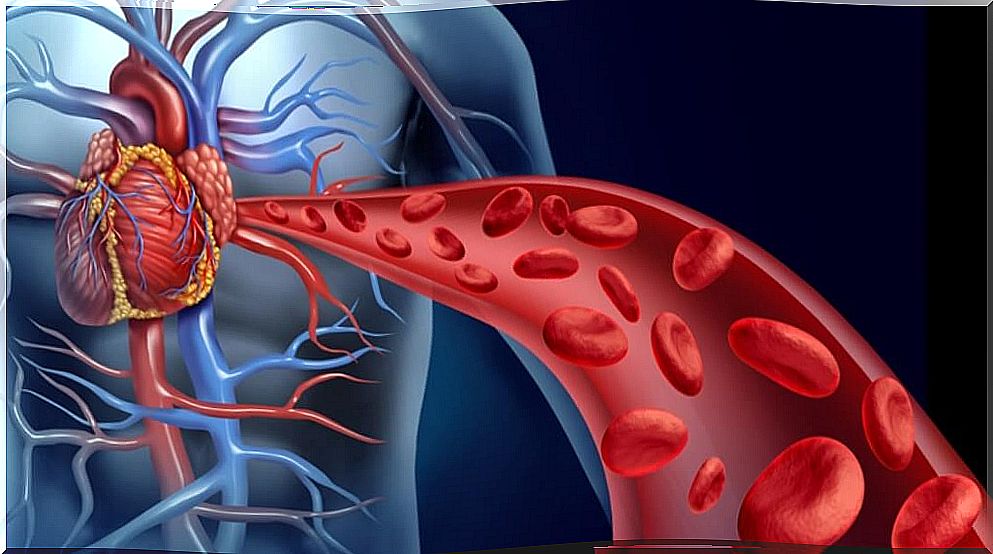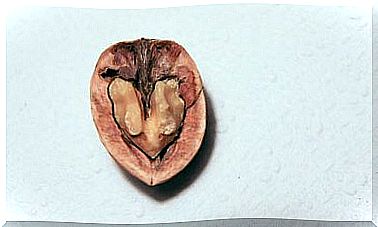How Does Menopause Affect Your Heart Health?
To take care of the health of your heart after menopause it is very important that you exercise daily and monitor the possible changes that they may experience in order to avoid major problems.

Menopause is the time in a woman’s life when menstruation stops. You might think that it is something unimportant, but have you ever stopped to consider that menopause affects the health of your heart?
At this point, your body stops producing changes in the hormones important, such as estrogen and progesterone. Therefore, you will be more prone to diseases of various kinds and here we will tell you about it.
Pay attention and don’t let that change wreak havoc on your well-being.
Blood flow problems
The decrease in estrogen is often a determining factor in your heart health problems after menopause. This is because estrogen plays an important role in the flexibility of the inner side of the arterial walls.
One of its functions is to facilitate relaxation and expansion that allow blood flow.
Although estrogens provide your body with a wide variety of benefits, some doctors contraindicate postmenopausal hormone therapy.
It is recommended that you ask your cardiologist directly if he has told you that this problem exists. He, in conjunction with your gynecologist or endocrinologist, you should make the appropriate settings.
These safety measures are necessary if you have any risk or history of cardiovascular disease or stroke.

Alterations in blood sugar levels
Changes in estrogen and progesterone levels influence the response of cells to insulin . For this reason, its decrease or alteration can cause fluctuations in blood sugar levels.
If you have never had diabetes, prediabetes or glucose problems, it is important that you maintain basic control. For this, your biannual medical review is enough.
When living with diabetes, it is important that you pay special attention to changes in your glucose levels. Avoid making changes if you notice alterations. Instead, ask your doctor what you should do.
These precautions are necessary because another way that menopause affects your heart health is by altering your blood vessels and blood .
The most common is that, both arteries and veins, lose a little pressure and lose strength and elasticity. All of this can lead to increases in blood pressure.
Weight gain

Menopause causes your metabolism to slow down and your ability to digest food is lower. These two factors result in excessive weight gain.
Overweight women are more likely to experience heart problems ranging from increased blood pressure to cardiac arrest.
To reduce the risks to your heart health after menopause, remember to maintain a good lifestyle after age 35. The basics is:
- Eat healthy and as natural as possible.
- Drink enough water during the day.
- Go to a semi-annual medical check-up.
- Get 30 minutes of exercise daily.
Significant fluctuations in cholesterol values
Another way that menopause affects your heart health is by making you more likely to experience noticeable fluctuations in blood cholesterol levels.
This is because estrogen levels influence LDL cholesterol levels , known as bad cholesterol.
It is important that you keep your hormones balanced at all times. If you have never taken the time to monitor this part of your health, ask your gynecologist to tell you which blood tests to perform.
High cholesterol causes arteries and veins to become blocked. Among other problems, there can be bruising without cause and even heart attacks.
Changes in heart rate

Another way that menopause affects your heart health is by heart rate. This is because the blockages generated in the veins by hormonal changes alter blood circulation.
If you have already been diagnosed with other heart problems, it is essential that you pay more attention to the symptoms that your doctor has asked you to monitor.
In any case, it is important that you notify your cardiologist if you notice unusual palpitations and dizziness.
Maintain constant communication with your doctors
Many women can go through menopause without any problem. However, it is always a good idea to visit the following doctors at least once. In the best of cases, they will find that everything is perfect and you can be calm.
The first doctor you should visit is the gynecologist. He will review the changes that occur in menopause. If your health is in tip-top condition, it may be the only one you need that you need to see.
Also you should visit the cardiologist if your gynecologist notices changes in cholesterol levels. If you already have a history of heart problems, you should simply continue your routine check-ups.









